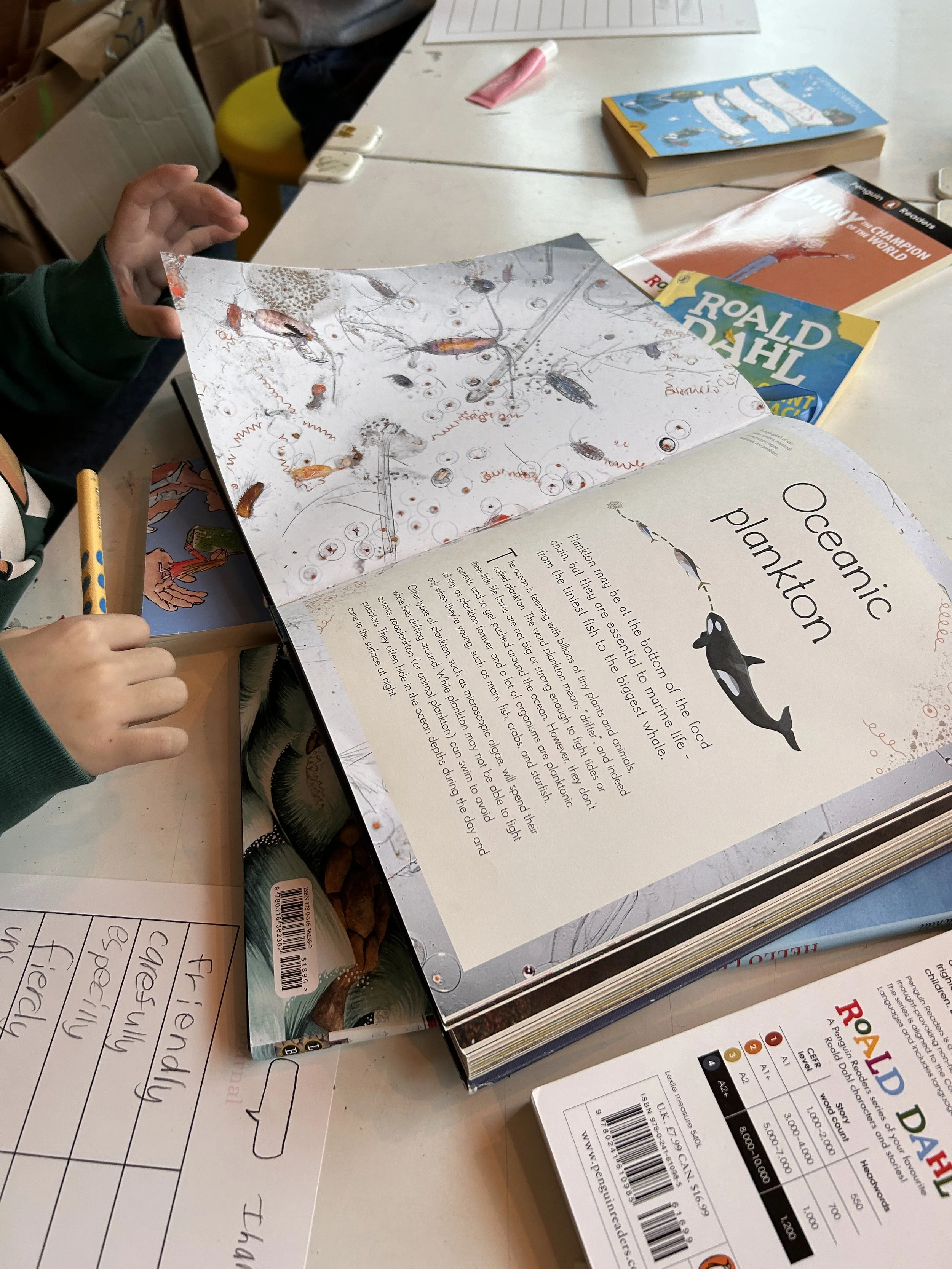Writer’s Club & Jr. Researchers
"A word after a word after a word is power." - Margaret Atwood
Writing is like playing an instrument: it requires repetition and practice. Over time, it becomes a habit, and then, word by word, it becomes a song.
Writing is not just a tool for expressing ideas, but also a process of thinking and discovery. To write, children learn to organize their thoughts, develop critical thinking skills, and gradually establish their own unique way of thinking. Writing bridges their minds to the tangible, transforming thoughts into organized expressions.
At Pilco we are always exploring and developing ways to encourage, support and inspire this creative process. Currently, we offer two creative writing programs.
-
A place for young writers from 6-9 years old to foster their love for storytelling through creative writing. Season after season we observe our young writers at our weekend workshops develop confidence in their own expression while honing on their foundational skills in writing.
Strengthen language use and vocabulary skills.
Improve writing structure, from sentence formation to paragraph building.
Foster problem-solving thinking by developing plots, characters, and settings.
Writing from different perspectives.
Gain confidence in self-expression and articulating thoughts with clarity.
Explore both fiction and non-fiction writing styles through guided writing and reading sessions.
Nurture a lifelong passion for writing that extends beyond school.
-
Scientific writing is a challenging discipline for many young writers because of its use of technical terminologies and academic language.
The process of research can also be daunting, as it requires higher level cognitive skills in critical thinking, analysis and synthesizing information.
At Jr. Researchers, children 9-11 yr old will have the opportunities to,
Read, analyze, and summarize a wide range of non-fiction materials.
Explore the fascinating world of scientific discoveries and unsolved mysteries.
Learn to use essay structures to organize and present information.
Develop knowledge in academic and domain specific vocabularies.
Cultivate a creative approach in explaining ideas and concepts - such as storytelling, analogies, or visuals to simplify complex ideas.

